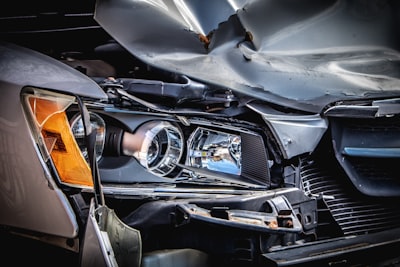Collision and comprehensive coverages often come hand in hand within a full coverage auto insurance policy. However, these policies are not the same. Instead, they both cover damages to the vehicle caused by different incidents. Neither of these coverages are legally required, but both are highly recommended to help you carry the brunt of expenses after an accident.

What is Comprehensive Coverage?
Comprehensive coverage pays for the cost to damage repairs and will even replace your entire vehicle if it is beyond repair when you are at fault. This insurance covers against damages to the vehicle caused by:
- Fire
- Wind
- Hail
- Lightning
- Smoke
- Theft
- Vandalism
- Explosions
- Falling objects
Comprehensive does not include collisions, however. So, if a tree branch falls and shatters your windshield, your comprehensive coverage should help pay for the damages. If you are in an accident where you collide with another object while driving, such as a fire hydrant or curb, you will not be covered.
Be sure to ask your insurance agent about what your comprehensive coverage will and will not cover, as certain acts of terrorism and other accidents may not be covered.
What is Collision Coverage?
Collision coverage is more of a single-minded coverage as it only covers physical damage to your vehicle caused by a collision with another vehicle or object. If you are hit by another car on the road, collision coverage is the section of auto insurance that can help you repair or replace your vehicle.
This is generally the most expensive portion of an automobile insurance policy, as it is based on replacing or repairing your vehicle. Premiums also vary due to your deductible, driving record and whether the coverage is truly necessary. Selecting a higher deductible will keep premium costs low, but you will pay more out-of-pocket in the event you are in an accident.
Neither collision or comprehensive coverage provide compensation for injuries or damages you may cause to someone else’s vehicle. Make sure your auto insurance policy also includes medical payments coverage and liability to take care of any injuries or third-party damages involved in an accident.
Choosing your coverage limits and deductible for your auto insurance is incredibly important, as choosing too little coverage can leave you with holes in your policy while too high a deductible can leave you struggling to repair your vehicle. Speak with an insurance agent about insuring your vehicle.